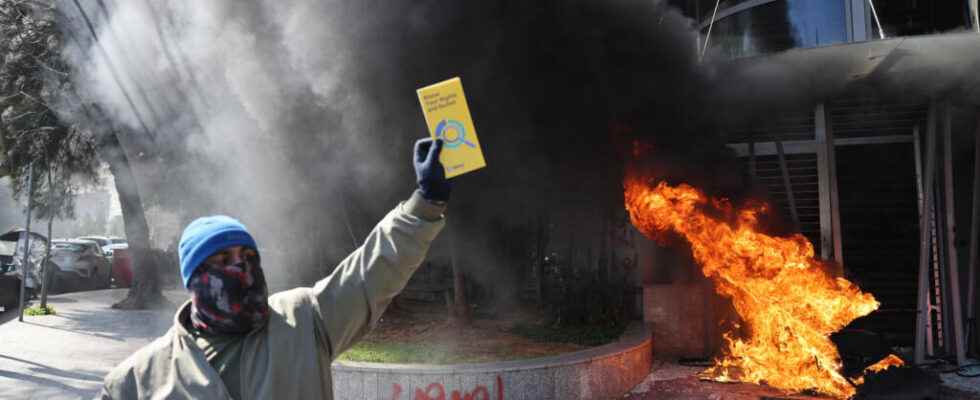In Lebanon, angry demonstrators attacked banks and closed roads on Thursday (February 16th) to protest against the vertiginous fall of the Lebanese pound against the dollar, which nothing seems to be able to stop. The army intervened in several regions to prevent overflows and restore calm.
With our correspondent in Beirut, Paul Khalifeh
In Beirut, militants joined by passers-by set fire to six bank branches and threw stones and smashed the storefronts of other establishments.
Other protesters set fire to the gate at the entrance to the residence of the president of the Association of Banks, Salim Sfeir, in an upscale suburb east of Beirut.
حرق المصارف بحل المشكلة أو جرّن عالقضاء ودعم القضاة الي تجرؤوا يواجهوا هالمنظومة الشيطانية بردّلنا? فهمتوا هلأ قديش جريئين وأبطال هالقضاة، وقديش مهم ندعمن ونضغة ع؊لس لط؟!
ما تخسّرونا المضمون من ورا الشكل! هلأ صار عندن كل الحجج والحق ليبقوا مسكرين! ??♂️#فكروا_فيا pic.twitter.com/6blcN9Q45w
— Bassam Turk ?? (@bassamturk) February 16, 2023
The banks have been on open strike for ten days to protest against legal actions initiated by anti-corruption judge Ghada Aoun. This closure has caused a lack of liquidity and aggravated the difficulties faced by the population.
In the city of Tripoli, in northern Lebanon, protesters ransacked several bank branches. Same scene in the city of Saïda, in the south of the country.
In the southern suburbs of Beirut and in the Bekaa, groups of protesters cut roads to shout their anger.
The Lebanese army has dispatched significant reinforcements to the four corners of the country to restore calm and prevent the generalization of this climate of disorder.
► Read also Lebanon: the Lebanese pound continues to fall
This new fall in the national currency has caused a sharp rise in the prices of fuels and basic necessities.
The minimum wage is now only worth the equivalent of 8 dollars compared to 450 dollars before the crisis three years ago.
► Read also A diplomatic meeting in Paris to find a way out of the political crisis in Lebanon
